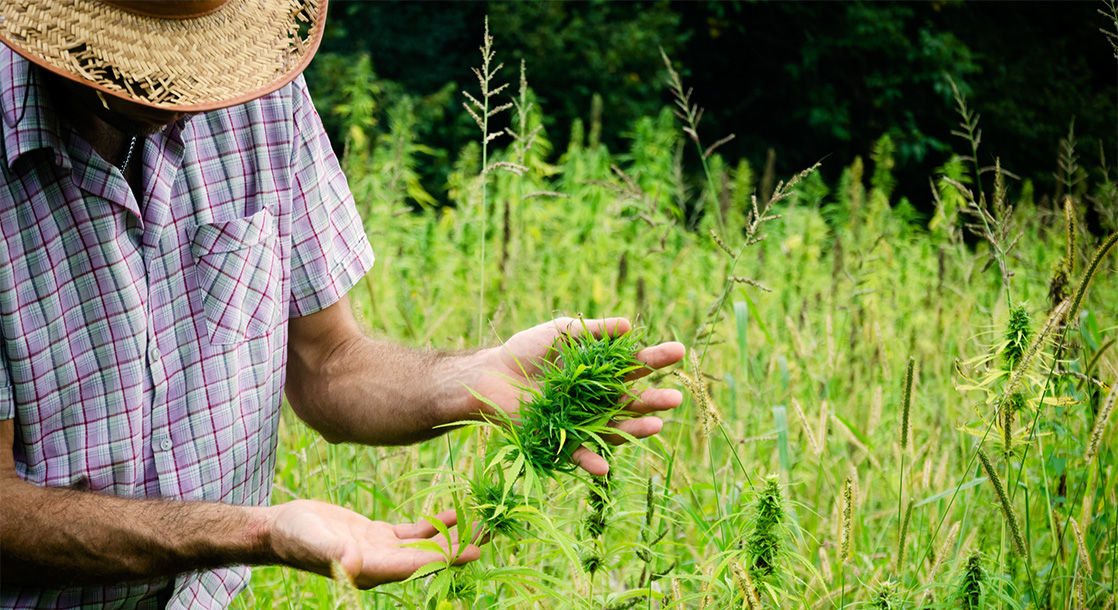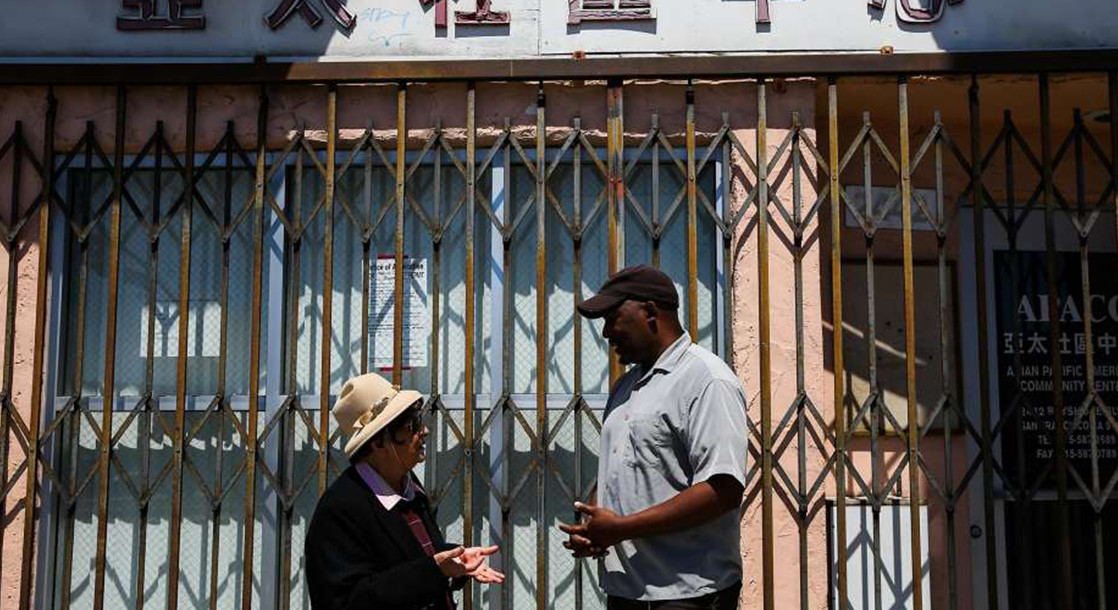All across the U.S., farmers are looking to hemp to provide a much-needed boost to their struggling agricultural businesses. Farmers have been finding it harder and harder to survive in today's economy, and recent tariffs on exports have caused the prices of many common crops to fall even further this year. Widespread hemp production may be able to revitalize the country’s agricultural industry, due to the exploding popularity of CBD, which can be sourced from the plant, alongside hemp's traditional use as a source of fabric, food, and fuel.
Hemp has traditionally been grown around the world for its strong fibers, which have been used to produce clothing, rope, and paper products. In colonial America, hemp was an extremely popular crop, and even George Washington grew hemp on his Mount Vernon estate. In the 1930s, prohibitionists began to crack down on cannabis, but were unable to differentiate between marijuana and its non-psychoactive cousin. Today, hemp still remains classified as a Schedule I drug, even though smoking it can't get you high.
The prohibition of cannabis hasn't stopped U.S. businesses from using hemp, however. Last year, American companies imported over $67 million worth of hemp seeds and fiber, money that could have gone to local farmers if hemp production was legal. Widespread cultivation of hemp still remains illegal, but hemp farms have been springing up across the country over the past several years — thanks to a provision of the 2014 Farm Bill that allows hemp to be grown for research.
Many individual states have recently passed laws allowing the cultivation of hemp, and over 25,000 acres of the plant were harvested last year — more than double the amount harvested in 2016. Applying to grow hemp under current laws is no easy task, though. The grower must pass an FBI background check, obtain permits from their state, and submit to regular inspections to ensure that they are not growing pot. Many states also require hemp farmers to grow female plants only, to prevent accidental cross-pollination with marijuana, which is a time-consuming process.
Regardless of these complications, a growing number of farmers are making the switch to hemp. Nearly 10,000 acres of the plant were harvested in Colorado last year, while Oregon farmers harvested under 3,500 acres, and Montana, Nevada, and Washington each harvested around 1,000 acres each. The country's growing demand for CBD-based medicines has exponentially increased the value of hemp, and some farms are reporting revenue of $90,000 per acre — a significant gain on the $600 a farmer can make from an acre of alfalfa.
Last year, Kentucky farmers collected $18 billion in hemp revenue, adding tens of thousands of new jobs in the process. Kentucky-born Senate Majority Leader Mitch McConnell has proposed several pieces of legislation that would remove hemp and all its derivatives, including CBD, from its Schedule I classification, allowing any American farmer to grow this lucrative crop. The strong bipartisan support for this legislation makes it increasingly likely that it will succeed, and many individual states are now proposing and passing bills to legalize hemp cultivation in anticipation of full federal legalization.
In 2016, Pennsylvania created the Hemp Research Pilot Program, allowing farmers to grow hemp under the provisions of the 2014 Farm Bill. Across the state, farmers have been harvesting the first hemp crops to be grown in the state in 50 years. “We are going from nothing to building a crop — slowly, steadily, methodically,” Geoff Whaling, president of the Pennsylvania Hemp Industry Council, said to the Tribune-Review. “We’re going from zero to a whole, brand new industry over the next 12 months.” There are currently 30 licensed hemp cultivators in the state, who are growing around 1,000 acres this year, but Whaling expects to see this acreage more than double in 2019.
“Ten years from now, this really is going to be a multi-billion dollar industry, and 20 years from now, people are going to be saying, ‘What was the big deal?’” Whaling said to the Post-Gazette. Wisconsin is also taking its first steps into legal hemp production this year, now that its research pilot program is underway. The state Department of Agriculture, Trade and Consumer Protection has approved 344 hemp cultivation and processing licenses, and farmers are expecting to harvest their first crop this fall.
Farmers in Indiana were also hopeful that a thriving hemp industry could help bolster their business after the prices of the state's primary cash crops — soybeans and corn — sank due to President Trump's trade war with China. Last year, legislators introduced a bill to legalize a hemp pilot program, and the bill passed the state House this year. “Farm income these days is pretty tough,” Don Zolman, CEO of Zolman Farms, told a committee of state legislators, according to Forbes. “To have an alternative crop to add to the income stream for Indiana farmers is vital at this time.”
The state Senate ultimately rejected the bill, however, leaving local farmers to deal with falling prices while Congress debates whether to allow the country's once-thriving hemp industry to return in full force.











